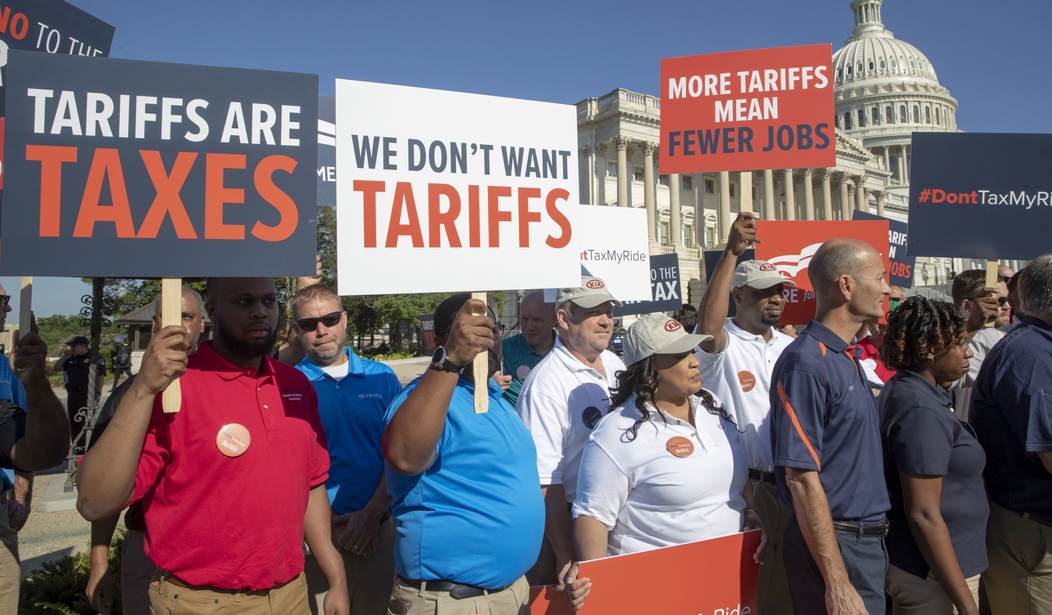One of the great lies of modern politics is that when a policy fails, it's because someone just didn't care enough. It's a nostrum repeated frequently: If President Trump were to only care more about immigrant children, he'd find a way to unite them with their parents; if Democrats were to only care more about the homeless, they'd find a way to clean up Los Angeles and Seattle; if Republicans were to only care more about the sick, they'd find a way to bring down insurance premiums.
In reality, most failures are simply the result of unintended consequences.
Take, for example, President Trump's tariff policy. Trump believes that "Tariffs are the greatest," according to one of his tweets this week. Not only are they the greatest; they prevent us from becoming the "'piggy bank' that's being robbed." Trump looks across the vast savannas of the United States and sees domestic businesses undercut by foreign competition, and his immediate thought is to help those businesses by taxing their foreign competitors.
Unfortunately, his policy has unintended consequences: It raises prices and causes retaliatory tariffs. So domestic consumers pay more for products; domestic producers have to pay more for the inputs they use to manufacture their own products; and foreign markets are closed to American exporters. All of this means that some of the businesses Trump seeks to help actually get hurt, which is why both Whirlpool and Harley-Davidson have downgraded their profit expectations in the wake of Trump's policy.
But Trump still wants to demonstrate that he cares. And so, he undertakes a Band-Aid policy: subsidies to agricultural concerns hurt by his tariffs. This week, the administration announced a Department of Agriculture $12 billion subsidy directed at farmers who can no longer competitively export product to foreign markets. "(I)nstead of offering welfare to farmers to solve a problem they themselves created, the administration should reverse course and end this incoherent policy," Sen. Bob Corker, R-Tenn., accurately summed up.
Recommended
It's not just Trump.
Democrats routinely complain about the price of rent in major cities but then institute rent control and subsidized housing, driving up the cost of development. In order to deal with the rising costs of rent, they push for an increase in the minimum wage, which causes more unemployment. Then they tax the businesses they've already penalized in order to pay for the unemployed.
Or they push for lower educational costs and seek government subsidies to drive down college tuition. But in doing so, they create a base rate colleges can now charge, driving up those rates.
Or they push for better Medicare subsidies, creating new demand, which drives up prices.
This is the problem with government policy in general: It's a blunderbuss. Collateral damage from any broad-based policy is likely to far surpass the damage undergone by individuals in a free market system, which means we ought to tread carefully when it comes to making such policy.
But we won't. Instead, we'll just chalk up such failures to a lack of will or spirit, and demand more action -- action that will fail. And then we'll repeat the cycle over and over, never suspecting that perhaps it's our good intentions that got us into trouble in the first place.
























Join the conversation as a VIP Member